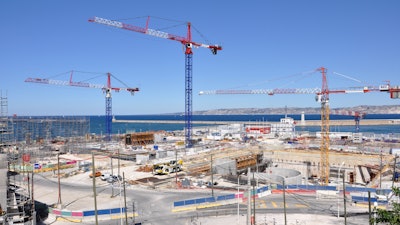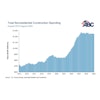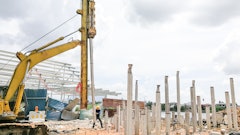
On December 8th, Chair of the House Committee on Transportation and Infrastructure Peter DeFazio (D-OR), Ranking Member of the House Committee on Transportation and Infrastructure Sam Graves (R-MO), Chair of the Subcommittee on Water Resources and Environment Grace F. Napolitano (D-CA), and Ranking Member of the Subcommittee on Water Resources and Environment Bruce Westerman (R-AR) applauded House passage of the Water Resources Development Act of 2020 (WRDA).
This bipartisan legislation, which Congress has developed and passed on a biennial basis since 2014, is essential to U.S. ports, harbors, and inland waterways, as well as ecosystem restoration and flood mitigation in both rural and urban communities. The legislation passed as a result of negotiations with the Senate since House passage of H.R. 7575 in late July.
WRDA (S. 1811) will specifically allow for the appropriation of $10 billion in additional funds from the existing Harbor Maintenance Trust Fund Balance, authorizes construction on 46 pending Army Corps Chief’s Reports projects, authorizes 27 feasibility studies, and improves the cost share between the general fund and the Inland Waterways Trust Fund for inland waterways projects, unlocking additional construction funds. Nearly 80% of traded goods that Americans rely on is moved through our nation’s ports, harbors, and inland waterways, according to the Committee.
“I applaud my colleagues in the House for passing the bipartisan Water Resources Development Act of 2020. This legislation — which the House unanimously approved earlier this year — is key to boosting America’s competitive edge. It includes provisions to invest in our ports, harbors and inland waterways; build more resilient communities; address affordability concerns for communities; unlock the Harbor Maintenance Trust Fund; and ensure that the U.S. Army Corps of Engineers carries out projects in an economically and environmentally responsible manner keeping equity in mind,” Chair DeFazio said. “It’s now time for the Senate to follow the House’s lead and pass this legislation so it can finally go to the President’s desk to be signed into law.”
“WRDA 2020 will help strengthen the Nation’s global competitiveness, grow the economy, protect our communities and create jobs. In particular, the vital flood control and risk reduction improvements in this bill will help safeguard communities throughout North Missouri and around the country,” Ranking Member Graves agreed. “This bipartisan, bicameral legislation demonstrates what Congress can do for America’s infrastructure when we leave politics at the door and work together to find common ground.”
Subcommittee Chair Napolitano added that the WRDA will create much needed jobs and boost U.S. economic recovery, while upgrading the nation’s water infrastructure and safeguarding the environment. Funding provisions are included not only for ports, but to combat risks in drought- and wildfire-prone regions.
“WRDA is a great example of commonsense, bipartisan policy in action. Water infrastructure is essential to our daily operations, whether you live in downtown New York City or on a farm in rural Oregon,” Subcommittee Ranking Member Westerman stated. “I’ve collaborated with my Transportation and Infrastructure Committee colleagues to put together a bill that funds critical water projects, including areas in Arkansas that were impacted by severe flooding in 2019. I’m glad to see all of Congress working together on this bill to get it to President Trump’s desk. I look forward to seeing it implemented across the country.”
Manufacturing Industry Responds
Association of Equipment Manufacturers (AEM) president Dennis Slater issued a statement shortly after House passage of the WRDA conference report.
“Modernized and efficient water infrastructure is critical to the success of the equipment manufacturing industry, agriculture community and other sectors of the U.S. economy. AEM applauds congressional leaders who have once again kept the tradition alive of developing biennial, bipartisan legislation that addresses our nation’s water infrastructure needs,” he stated. “Maintenance and modernization of our harbors and inland waterways is just one part of reclaiming America’s infrastructure advantage. While we continue to navigate the COVID-19 pandemic, we need our leaders to continue funding vital infrastructure projects that will keep essential people and goods moving. We urge the Senate to take up the Water Resources Development Act and send the bill to the President’s Desk.”



















